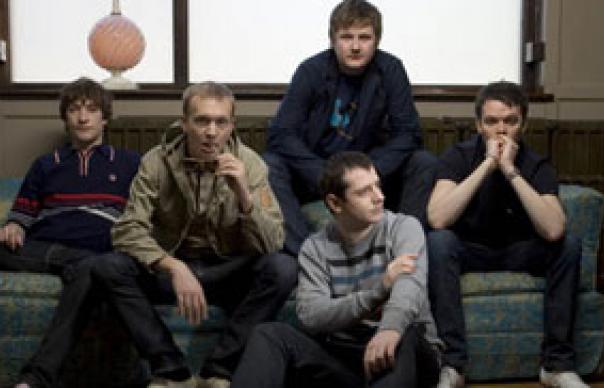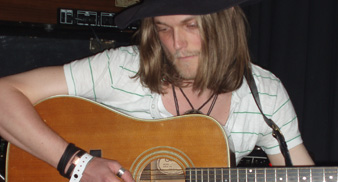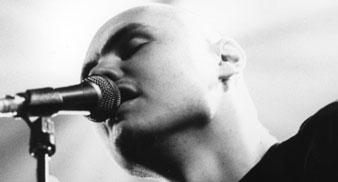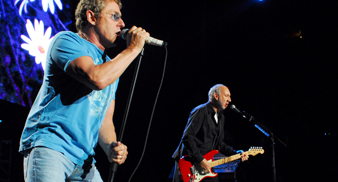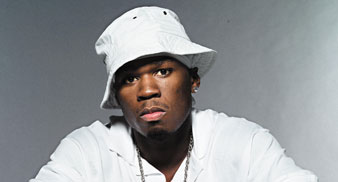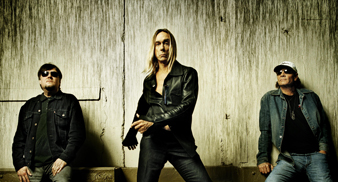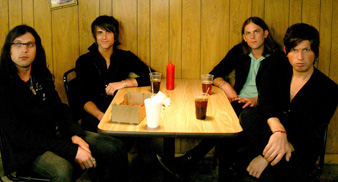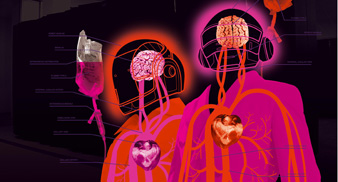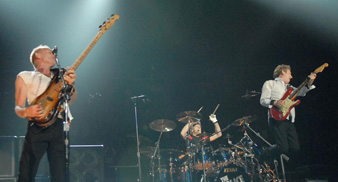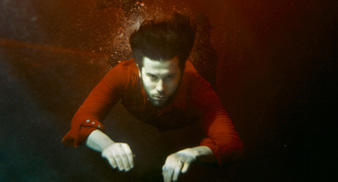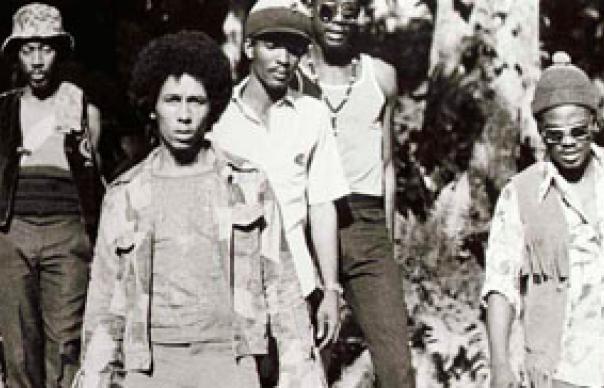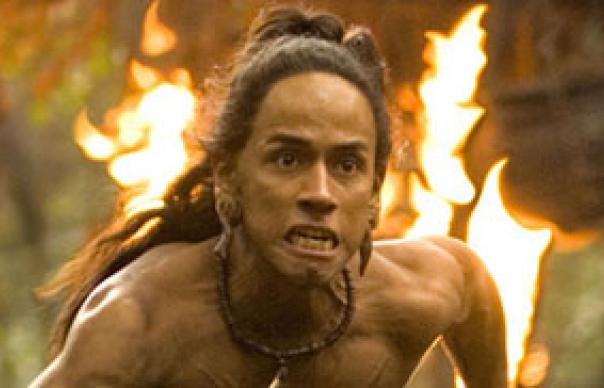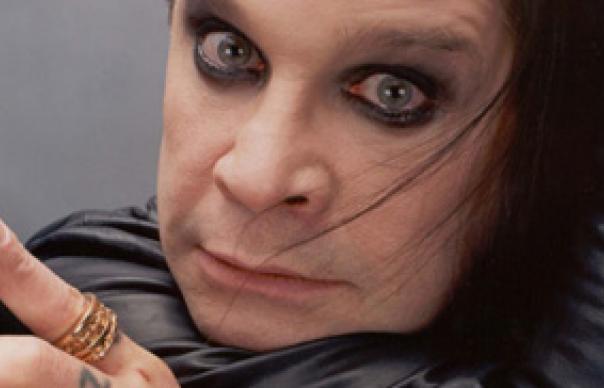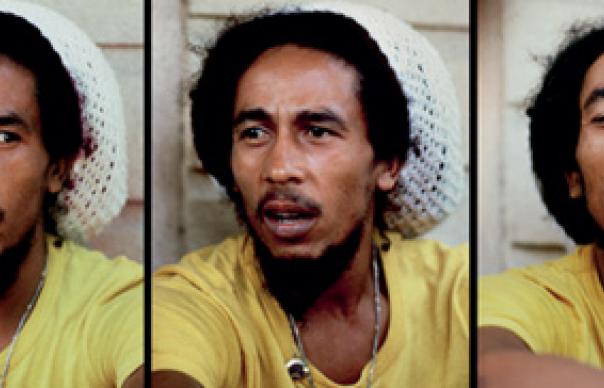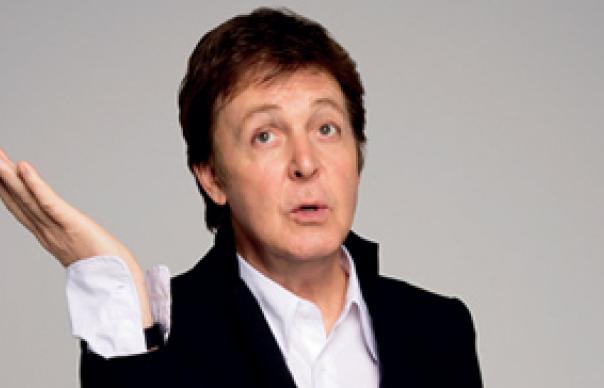Here we go again. Already buzzed up with urban legends about million-pound bidding wars and samurai sword-swinging showdowns, Birmingham rowdies The Twang are primed for one of those classic love-hate relationships between stylised working-class laddery and a half-titillated, half-appalled media. Their freaky-dancing, slang-heavy, wide-trousered jabber fits comfortably into an urchin-rock lineage stretching from Happy Mondays and Flowered Up to Oasis, The Streets and Goldie Lookin’ Chain. With a dash of Bash Street Kids for good measure. So far, all good. Gobshite frontman Phil Etheridge is not in Mike Skinner’s incisive lyrical league, but he still hits a few bullseyes in these cautionary tales of boozy all-nighters and dirty stop-outs. Love It When I Feel Like This is a boorish, boisterous, big-hearted drinking buddy of a debut. It opens all Liam-cocky on “Ice Cream Sundae”, boasting of the high times ahead. By “Either Way” it is shaking off the doubts of the day and declaring indestructible love for some special lady: “she’s the one that always cares… gotta find my phone and tell her.” But the point of no return inevitably rolls by with the surprisingly sunny, slippery infidelity anthem “Two Lovers”. Sloppy-drunk and slurring, “Don’t Wait Up” finds the album totally “wankered” and groping every potential shag within reach. By the time it stumbles into “Cloudy Room”, the game is lost in a head-spinning blur of music-hall disco and comical Droog speak: “mine’s a Marlon, yours a lager… let’s get some Gianluca”. As in Vialli. As in Charlie. Geddit? Etheridge’s cartoonish snapshots of Britlad life are reductive yet seductive, graceless but never charmless. But The Twang’s real secret weapons are Stuart Hartland’s shimmering, Edge-like guitar and a liquid rhythm section that recognises the distant gravitational tug of funk and reggae. Love It When I Feel Like This is gauche and lairy, but unexpectedly tender and lyrical too. It may well spill your pint, but it will most likely buy you another three and declare you its new best buddy. Dry your eyes mate. This could be the start of a beautiful friendship. STEPHEN DALTON
Here we go again. Already buzzed up with urban legends about million-pound bidding wars and samurai sword-swinging showdowns, Birmingham rowdies The Twang are primed for one of those classic love-hate relationships between stylised working-class laddery and a half-titillated, half-appalled media.
Their freaky-dancing, slang-heavy, wide-trousered jabber fits comfortably into an urchin-rock lineage stretching from Happy Mondays and Flowered Up to Oasis, The Streets and Goldie Lookin’ Chain. With a dash of Bash Street Kids for good measure.
So far, all good. Gobshite frontman Phil Etheridge is not in Mike Skinner’s incisive lyrical league, but he still hits a few bullseyes in these cautionary tales of boozy all-nighters and dirty stop-outs. Love It When I Feel Like This is a boorish, boisterous, big-hearted drinking buddy of a debut.
It opens all Liam-cocky on “Ice Cream Sundae”, boasting of the high times ahead. By “Either Way” it is shaking off the doubts of the day and declaring indestructible love for some special lady: “she’s the one that always cares… gotta find my phone and tell her.”
But the point of no return inevitably rolls by with the surprisingly sunny, slippery infidelity anthem “Two Lovers”. Sloppy-drunk and slurring, “Don’t Wait Up” finds the album totally “wankered” and groping every potential shag within reach. By the time it stumbles into “Cloudy Room”, the game is lost in a head-spinning blur of music-hall disco and comical Droog speak: “mine’s a Marlon, yours a lager… let’s get some Gianluca”. As in Vialli. As in Charlie. Geddit?
Etheridge’s cartoonish snapshots of Britlad life are reductive yet seductive, graceless but never charmless. But The Twang’s real secret weapons are Stuart Hartland’s shimmering, Edge-like guitar and a liquid rhythm section that recognises the distant gravitational tug of funk and reggae.
Love It When I Feel Like This is gauche and lairy, but unexpectedly tender and lyrical too. It may well spill your pint, but it will most likely buy you another three and declare you its new best buddy. Dry your eyes mate. This could be the start of a beautiful friendship.
STEPHEN DALTON


